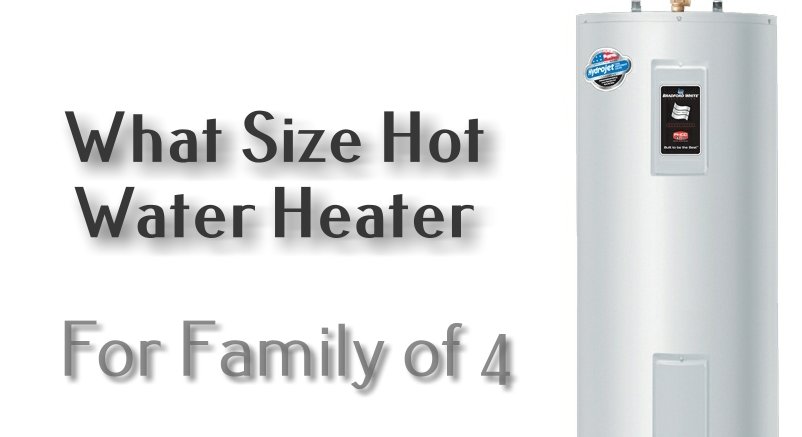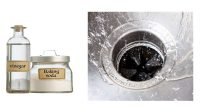When it comes to the water heater, there are lots of things we can talk about. A water heater can be a topic we will never run out of topic from sizes to the brands. It is indeed a helpful appliance in the house, keeping your family members warm with the water it produces.
That said, this appliance will be more crucial to use in winter. However, what size hot water heater for a family of 4? If you wonder what size is perfect for accommodating such a family, making sure to read through this article.
First, you should know that there is no exact, perfect size for families regarding water heater. Why so? It is because one family’s needs may differ from the other. The most significant factors contributing to the different perfect sizing are the water use habits and the total of water-using appliances used in the house.
But that doesn’t mean there is no estimation for such a condition. If you wonder what size water heater for a family of 4, it can be answered simply by preparing a 50-60-gallon water heater. This should suffice the typical situation where the family uses a shower (not a bathtub), using a dishwasher with specific water use, and doing the laundry the ‘frugal’ way.

So, why 50-60 gallons, you ask? It is based on the estimation that:
- Per family member takes around 10 gallons per shower,
- The family uses 7 gallons of hot water,
- The dishwasher takes up to 5-6 gallons.
Sum it up, and you will get 52-53 gallons in total to use in the morning. It all depends on your use, and providing a sufficient tank will benefit your family, but it also makes the machine not work forcefully and may lead to higher maintenance costs.
The water heater dimension also needs your consideration as well. If you are living in a narrower space, consider taking a smaller tank. For example, you may take a 40-gal water heater to accommodate your family since 40-gallon water heater dimensions are more diminutive. But it means you’ll need to compromise about the capacity and the maintenance cost it may incur.
You may wonder what you should do if you prefer a tankless water heater. Well, you can go for it. But since it has no tank like the previously mentioned example, you should learn about this is its First Rating Hour (FHR).
FHR can be described as the total volume of water you can get from the water heater per hour. That said, just like the water heater with a tank, it’d be better to prepare a tankless water heater that owns higher FHR than you need.
FHR is just one aspect to think about when it comes to the tankless water heater. There are two other measurement aspects you should think about while talking about this matter:
- Flow rate can be described as the measurement of the quantity of hot/warm water you can use per minute. This measurement uses gallons as the unit—other countries than the US may adopt different teams.
- Temperature rise is the total amount of degrees it requires to heat the water before reaching the shower fixtures.
So, those are the information you can get as the answer for ‘what size water heater for family of 4?’ That would be great if you determine first the use of water before deciding on which size you should use.


